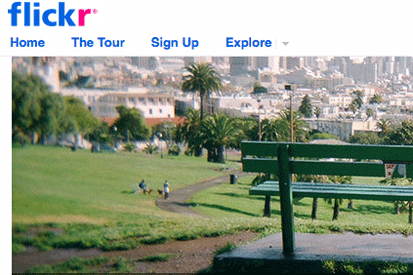
It's a new concept building on the established theory of Google's PageRank system. With PageRank, Google search results are scored and indexed depending on a number of dynamics, including web page linkbacks and keywords, which give weight to each individual page.
Topsy uses this same idea, but instead scours social networks such as Twitter, blogs, Flickr and Digg and assigns influence to users on those sites, say through retweets or blog comments.
When one Twitter user retweets another, it acts as a vote of confidence for the latter user.
When users search Topsy, tweets or links by the most influential users will appear at the top of the page, with options for filtering out results for the past hour, day, week or month.
Topsy is essentially creating an online currency out of user influence, turning traditional search on its head, giving a human face to the web.
Don't think Google hasn't noticed. Yesterday Google said it was concerned about the growing number of web users taking their search queries to Facebook and Twitter instead of Google, looking for more personal results and advice from friends instead of complex algorithms.
Rishab Ghosh, Topsy co-founder, said: "The social web is not a network of documents. It is conversation in a network of people. The social web generates a stream of citations of things - documents, videos, pictures, etc - that people are talking about.
"Searching through this stream of citations means separating the network of people from the things they discuss. Being able to do this is key to Topsy's approach."
As Twitter users clamber over eachother for followers, most notably Ashton Kutcher's and CNN's first past the 1m post race, online influence has never been such a hot topic.
Topsy relies heavily on Twitter, but has erstwhile beaten the microblogging website at its own game. Twitter revealed plans last month to index the millions of links passing through its website with results based on user influence but has yet to roll-out the service.



_1.jpg)
.jpg)
